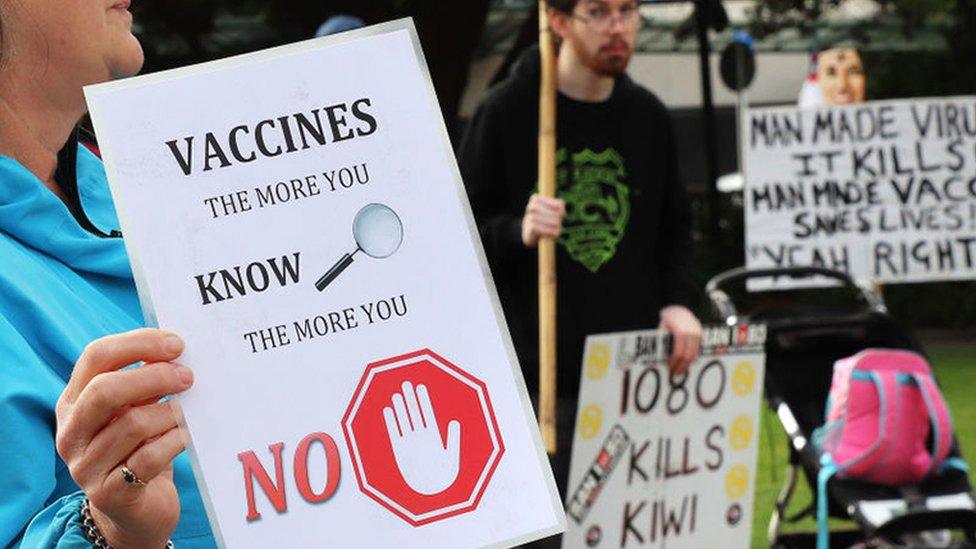UK heatwave: Weather forecasters report unprecedented trolling
- Published
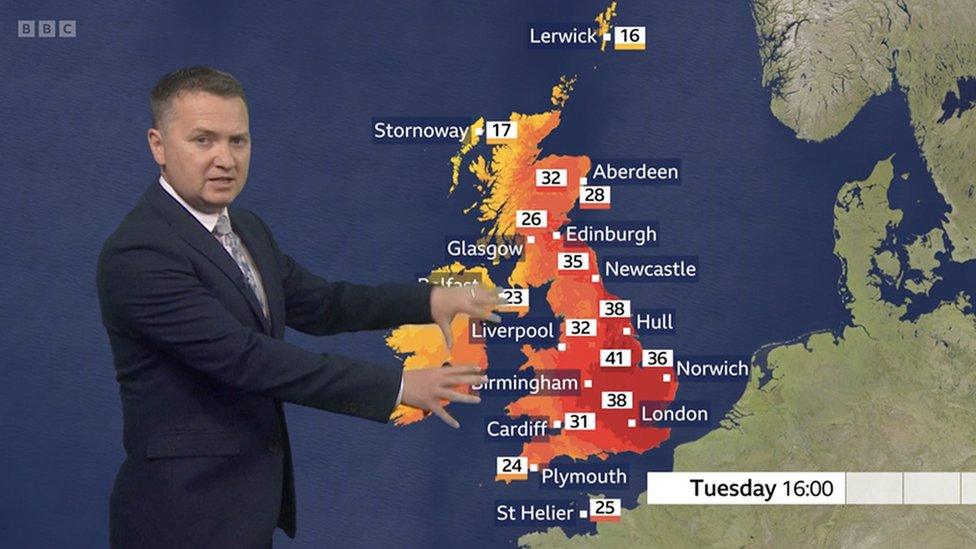
BBC forecaster Matt Taylor said: "The weather is very emotive. It gets people so worked up"
Weather forecasters faced unprecedented levels of trolling during this month's extreme heat in the UK, according to leading figures in the industry.
The BBC's team received hundreds of abusive tweets or emails questioning their reports and telling them to "get a grip", as temperatures hit 40C.
BBC meteorologist Matt Taylor said he had never experienced anything like it in nearly 25 years working in weather.
The Royal Meteorological Society condemned the trolling.
Most of the abuse seems to have been prompted as links were made between the heatwave and climate change.
The UK saw record high temperatures on 19 July, with 40C exceeded for the first time. Dozens of locations saw temperatures above the previous UK record of 38.7C and 15 fire services declared a state of emergency because of a surge in blazes.
The Met Office estimated the heatwave had been made 10 times more likely because of climate change.
The BBC's Matt Taylor said: "It's a more abusive tone than I've ever received. I switched off a bit from it all as it became too depressing to read some of the responses."
Met Office and Royal Meteorological Society forecasters were also targeted.
Members of the latter body faced "public ridicule, accusations of lying or suggestions of being blackmailed", said Royal Meteorological Society chief executive Professor Liz Bentley.
"Anecdotally, abusive comments increase when the message about climate change is intrinsic to the story," she said.
Met Office lead meteorologist Alex Deakin said "it's scary in some ways", adding: "I find it more frustrating and offensive for my colleagues - some of the great minds in climate science. Show a bit of respect and do a bit more research rather than just believe Bob down the pub or Tony on YouTube."
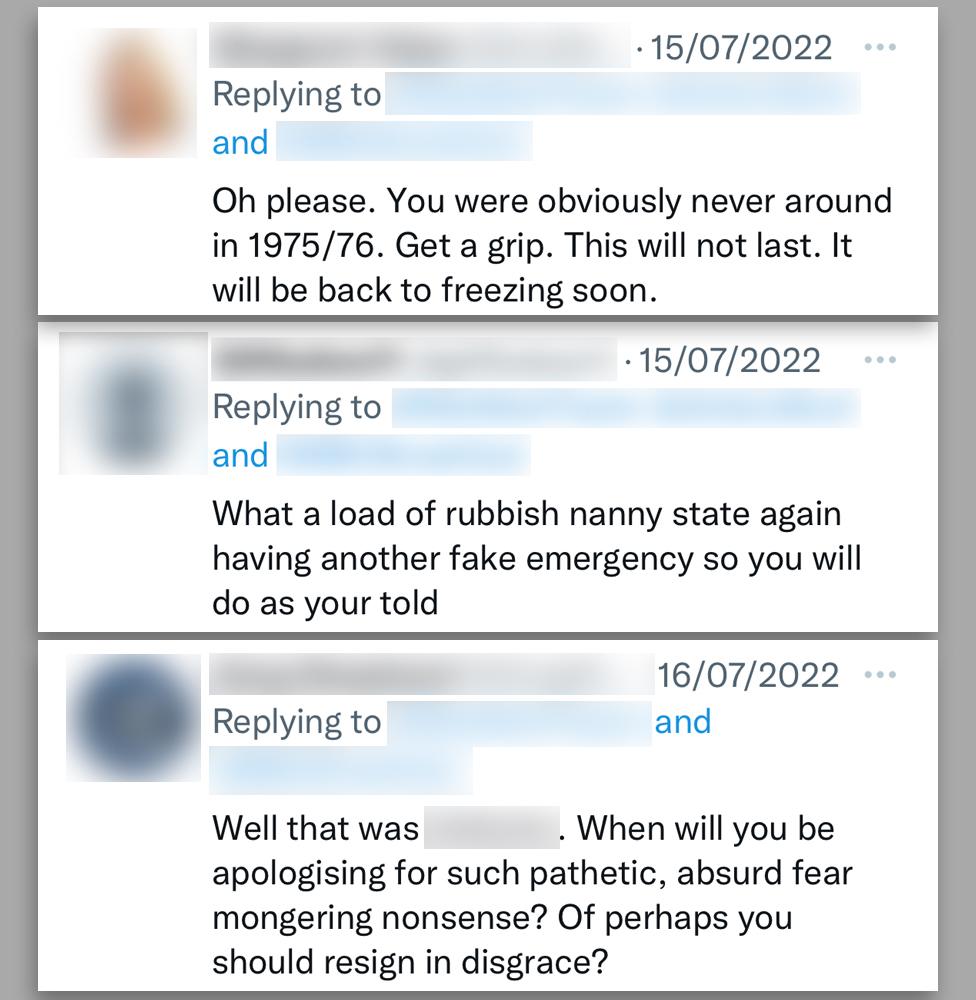
Abusive tweets accusing BBC Weather's team of 'scaremongering' peaked during the heatwave
Tweets aimed at BBC Weather and its presenters featured personal insults and messages such as "it's just summer" - many described advice on how to stay cool as pandering to the "woke-brigade" or for "snowflakes".
Other tweets accused the Met Office and the BBC of spreading "alarmism" and "hysteria", telling both to "stop scaremongering".
Hundreds of people have also shared their experiences of the 1976 heatwave on social media, with many making the false suggestion that this month's heatwave was "no different".
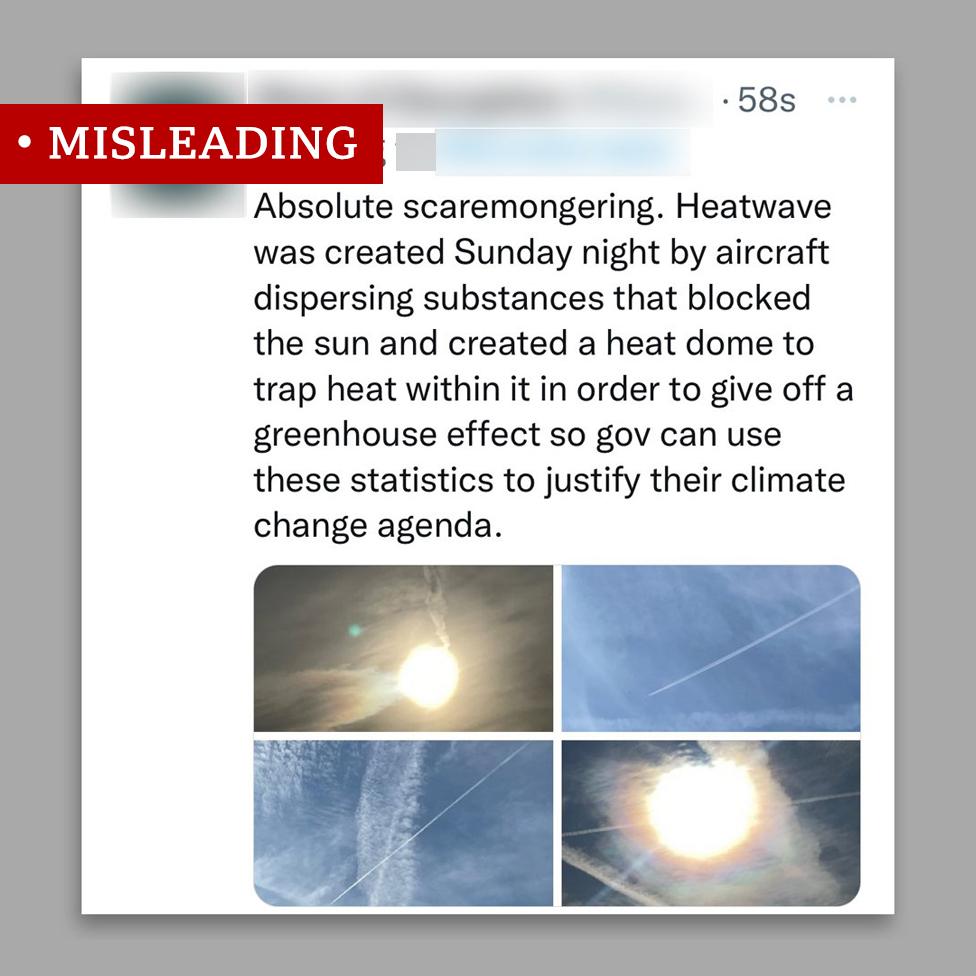
The peak temperature in 1976 was 35.9C, more than four degrees lower than the 40.3C recorded on 19 July. Nine out of 10 of the hottest days ever recorded in the UK have been since 1990, according to the Met Office. The hottest day from 1976 ranks as 13th in the list of the hottest UK days on record.
Periods of intense heat do occur within natural weather patterns, but they are becoming more frequent around the world, more intense and are lasting longer as a result of human-induced climate change.
BBC meteorologist Tomasz Schafernaker said: "What frustrates me most is when I'm accused of twisting the truth. As meteorologists, we report facts. There is no conspiracy."
Jennifer Bartram, BBC North East's weather forecaster, linked the level of abuse with what she saw as high-level climate disinformation circulating.
"I've noticed abuse getting nastier and more personal, and it's pretty demoralising when you're trying to do your job."
Matt Taylor said covering the heatwave was "really emotional" and it felt "like a real turning point in public attitude and realisation to what has happened to our climate."
He added: "The weather is very emotive. It gets people so worked up. What's good for some is bad for others and vice versa.
"Our climate has changed, so our reporting and response also has to change. All we're trying to do is bring people the facts."
BBC Weather said: "It is completely unacceptable for any member of staff to receive abuse on social media simply for doing their job."

Related topics
- Published29 July 2022
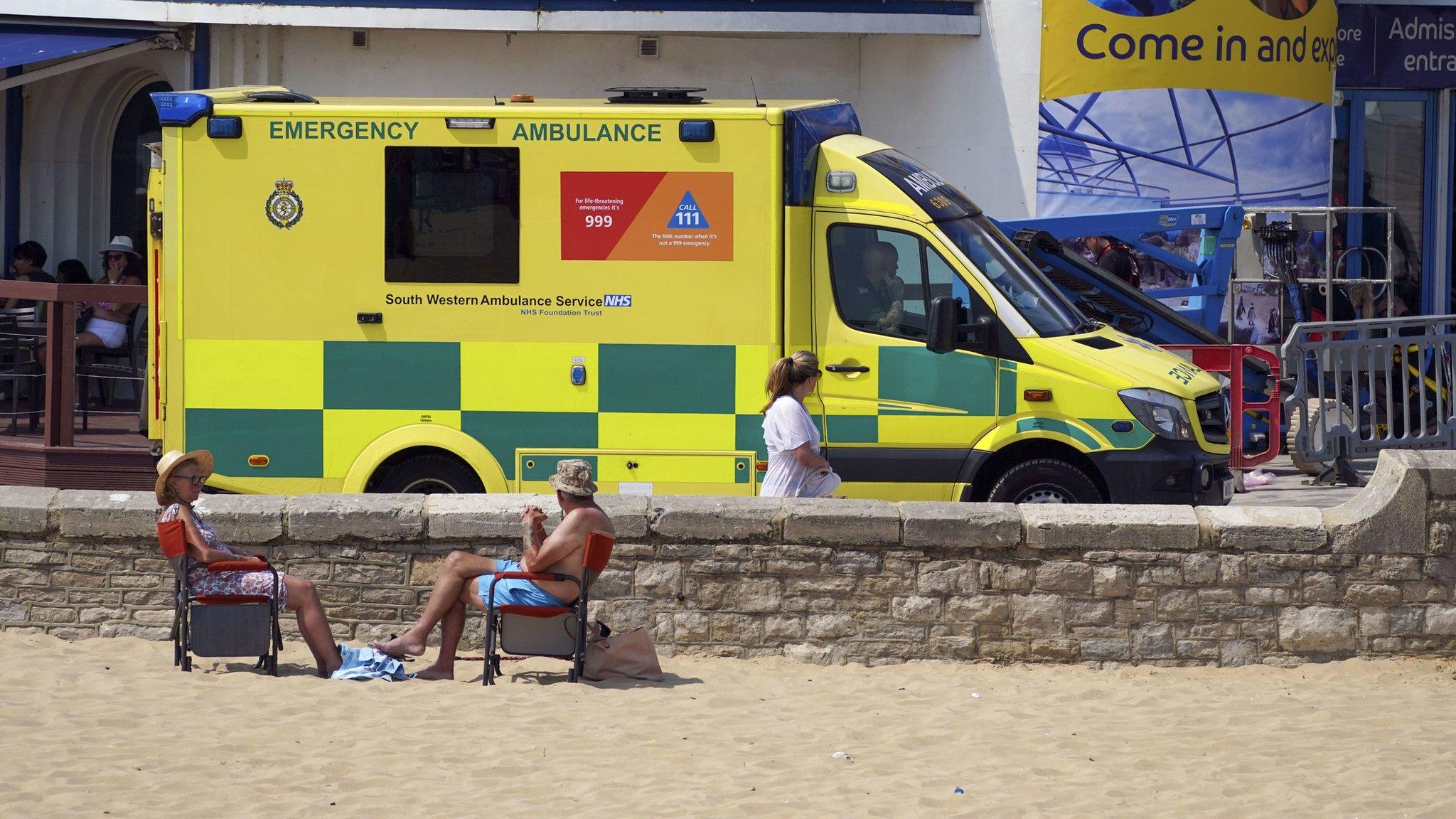
- Published23 July 2022
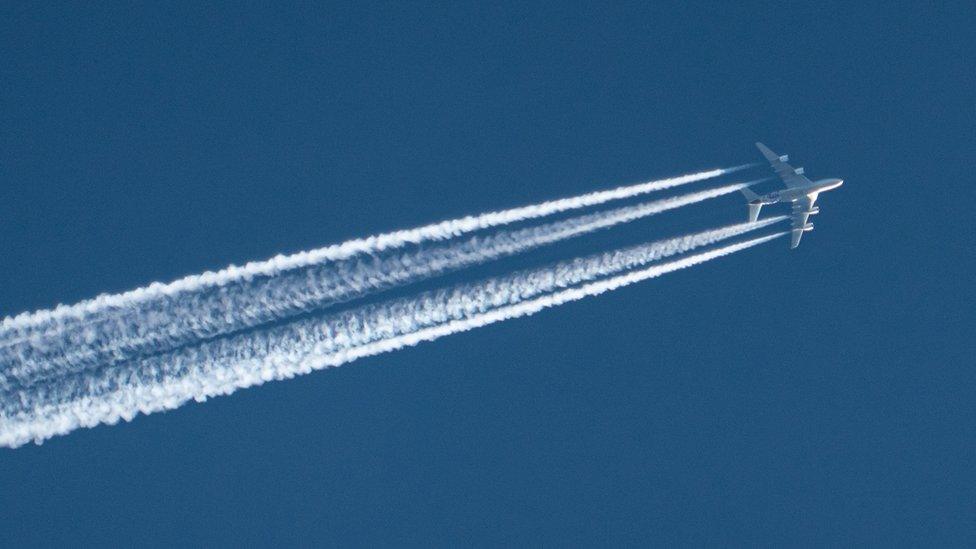
- Published20 July 2022

- Published20 July 2022

- Published19 July 2022
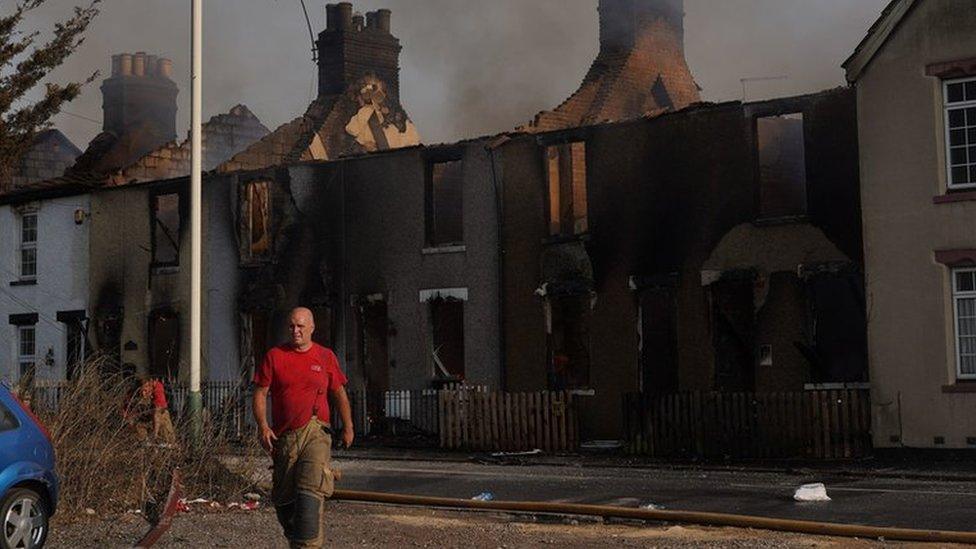
- Published16 November 2021
